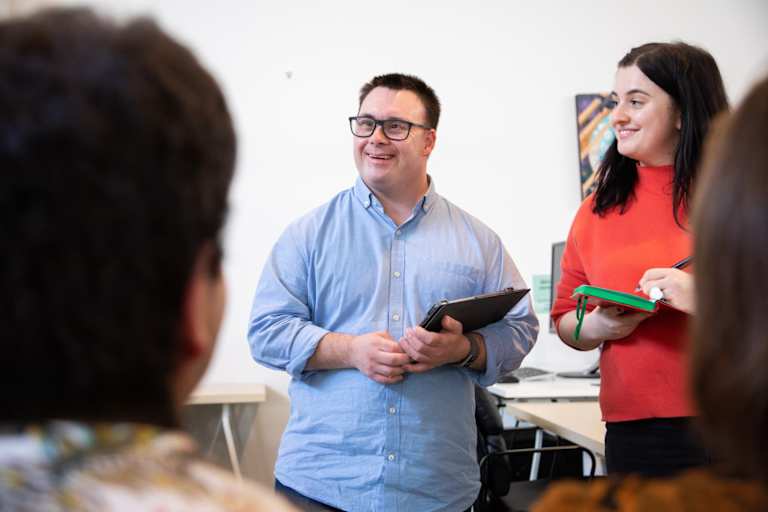How to Become an Licensed Counselor in Florida
- Licensure Requirements
- How Long Does it Take?
- Out-of-State Licensing
- Licensing Renewal
- Salary Expectations
- Professional Organizations
- FAQ
Before becoming a counselor in Florida, make sure you understand the requirements for Florida counseling licensure. Licensure requirements vary widely depending on the license type and your background.
Florida Counselor Licensure Requirements
Florida counseling licensure requires candidates to meet education, experience, and examination standards.
The Florida Board of Clinical Social Work, Marriage & Family Therapy and Mental Health Counseling oversees licensure for mental health counselors (LMHC) and marriage and family therapists (MFT). The Florida Department of Education licenses school counselors.
How Long Does it Take to Become a Counselor in Florida?
Meeting Florida counseling licensure requirements takes around 6-8 years. Licensed counselors can expect to spend four years completing a bachelor’s degree, followed by around two years in graduate school. Licensed mental health counselors and licensed marriage and family therapists also need to complete at least two years of post-master’s supervised experience.
School counselors can complete their education requirements with a four-year bachelor’s degree and a two-year master’s degree. Those who hold a teaching credential in Florida can speed up the licensure process because they do not have to pass additional examinations.
Out-of-State Licensing Reciprocity in Florida
What about counselors licensed in other states? Florida does not have reciprocity for counseling licenses. Counselors licensed in other states must apply for licensure by endorsement. Candidates must have an active clinical license and demonstrate at least three years of practice in the past five years. These applicants must provide a license verification document.
However, school counselors licensed in other states can apply for reciprocity. Licenses that require comparable education and subject knowledge qualify. Candidates must have a current, valid license. School counselors with a valid certificate from the National Board for Professional Teaching Standards also automatically qualify for a Florida school counselor license.
How to Renew a Counseling License in Florida
Licensed counselors in Florida must renew their credentials regularly. LMHCs and MFTs complete the renewal process every two years. They must complete 30 hours of continuing education, including:
- 2 hours on medical errors
- 3 hours on ethics and boundaries or telehealth
Every third renewal, counselors may also need to complete:
- 3 hours on laws and rules
- 2 hours on domestic violence
- 4 hours of qualified supervisor training
As licensed educators, school counselors renew their credentials every five years. Florida requires either six credits at the college level or equivalencies, including in-service programs, subject area exams, college teaching, or another valid form of renewal credit.
Salary Expectations for Counselors in Florida
Depending on their specialty, Florida counselors earn salaries ranging from $50,000-$70,000, according to May 2024 data from the Bureau of Labor Statistics.
Earning potential varies depending on location, experience, and job title. For example, MFTs earn higher average salaries than other counselors. Similarly, pay for substance use, behavioral disorder, and mental health counselors ranges from around $38,800 for the lowest-paid counselors to over $83,300 for the highest-paid counselors.
| Occupation | Average Hourly Salary | Average Annual Salary |
|---|---|---|
| Educational, Guidance, and Career Counselors and Advisors | $28.76 | $59,820 |
| Marriage and Family Therapists | $33.39 | $69,450 |
| Rehabilitation Counselors | $26.28 | $54,670 |
| Substance Use, Behavioral Disorder, and Mental Health Counselors | $29.08 | $60,480 |
| Counselors, All Other | $23.43 | $48,730 |
Professional Organizations for Counselors in Florida
- Florida Counseling Association: FCA provides community resources, networking opportunities, and discounted workshops. Members also benefit from an online job bank and an emerging leader program. The association runs five regional organizations and seven divisions in different professional fields.
- Florida Mental Health Counselors Association: FMHCA offers networking opportunities and professional development resources for mental health counselors. Members benefit from discounted and free webinars to meet continuing education requirements. The association also offers a member-only directory.
- Florida School Counselor Association: FSCA offers professional learning, educational resources, and free continuing education opportunities for licensed school counselors. The association advocates for school counselors and presents the school counselor of the year award.
Frequently Asked Questions About Counseling Licensure
Most counseling jobs in Florida require a license. Mental health counselors, marriage and family therapists, and school counselors all need to hold a license to practice. Other types of counselors who provide clinical services also typically need a license.


